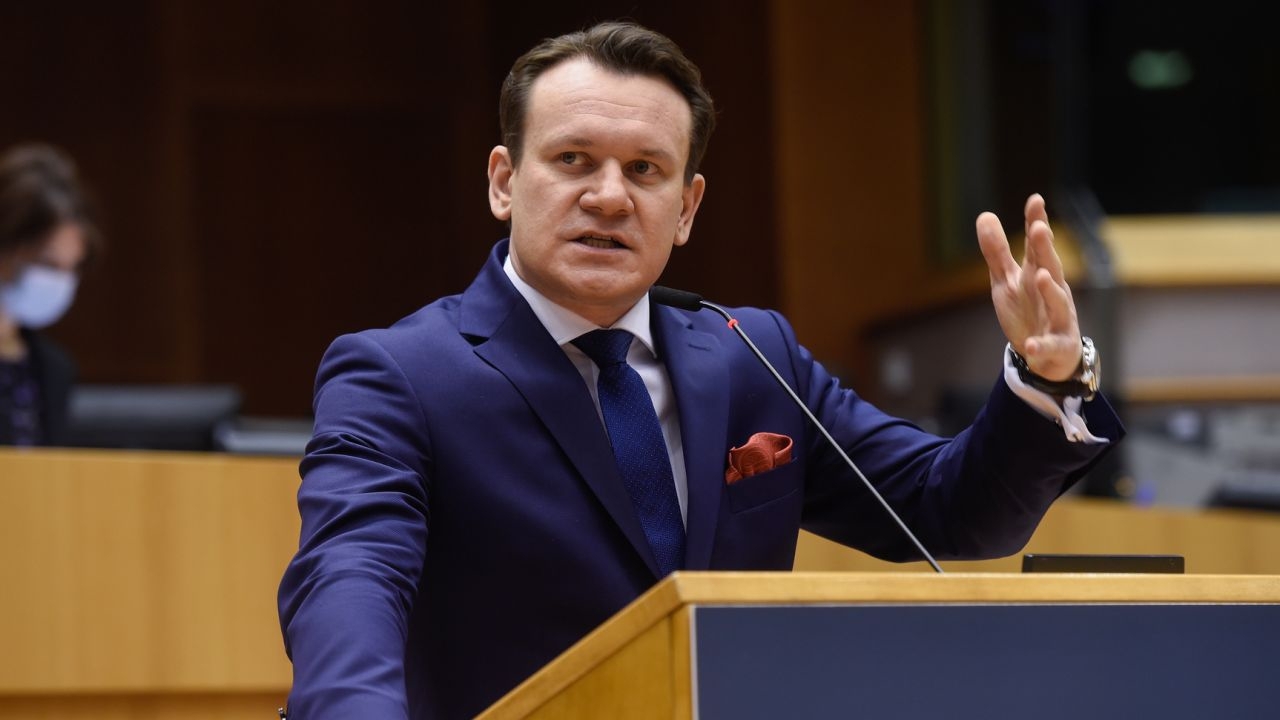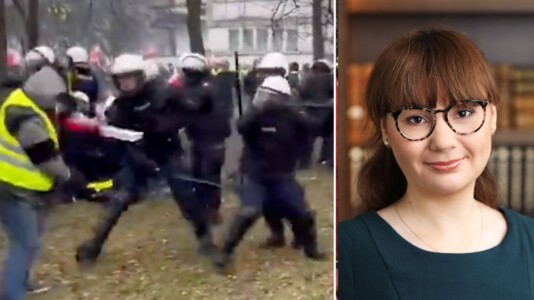In an impassioned address to the European Parliament, MEP Dominik Tarczyński of Poland’s ruling Law and Justice (PiS) party has called out “blatant hypocrisy” among members of Prime Minister Donald Tusk’s governing Civic Platform (PO) in relation to their stance on media freedom.
“Unbelievable! The director and founder of TV Belsat was just fired, the station’s budget is being cut, destroying a strategic project for Poland, yet PO deputies Halicki and Adamowicz debate the importance of free media!” Tarczyński shared on social media, attaching a video of his speech during the European Parliament plenary debate in Strasbourg.
His comments come amidst discussions surrounding a newly adopted European Union directive aimed at safeguarding media pluralism, freedom, and journalistic independence across member states.
“This is a significant step forward in ensuring the protection of our democracy, for without free media, there are no free elections and there is no democracy,” stated PO MEP Andrzej Halicki during the debate.
However, Tarczyński countered by detailing actions by Halicki’s party in Poland, which recently came to power and has dealt harshly with the media.
“We just heard Mr. Halicki talking about democracy and free media. I cannot believe that Mr. Halicki, from the governing Civic Platform party, is speaking of democracy and free media,” he asserted. Tarczyński further reported a takeover of public state media “overnight” following Donald Tusk’s rise to power in Poland, using a private security firm, with PO MEP Magdalena Adamowicz reacting with laughter to the situation.
However, when Tarczyński directly asked Adamowicz why the prime minister used a private company to take over public media, the MEP stopped smiling.
According to the Media Freedom Act adopted by the European Parliament, the new regulations are a response to growing concerns within the EU about the politicization of the media and the lack of transparency regarding their ownership and the allocation of public advertising funds.
Authorities will not be able to pressure journalists and editors to disclose their sources. Furthermore, journalists cannot be detained, sanctioned, or have their offices searched for this reason.





